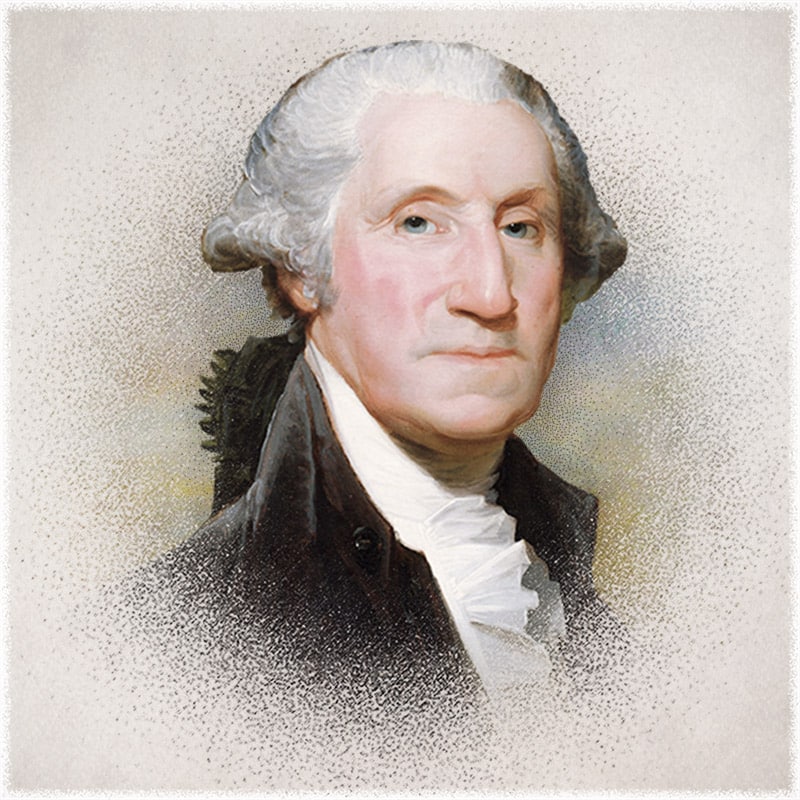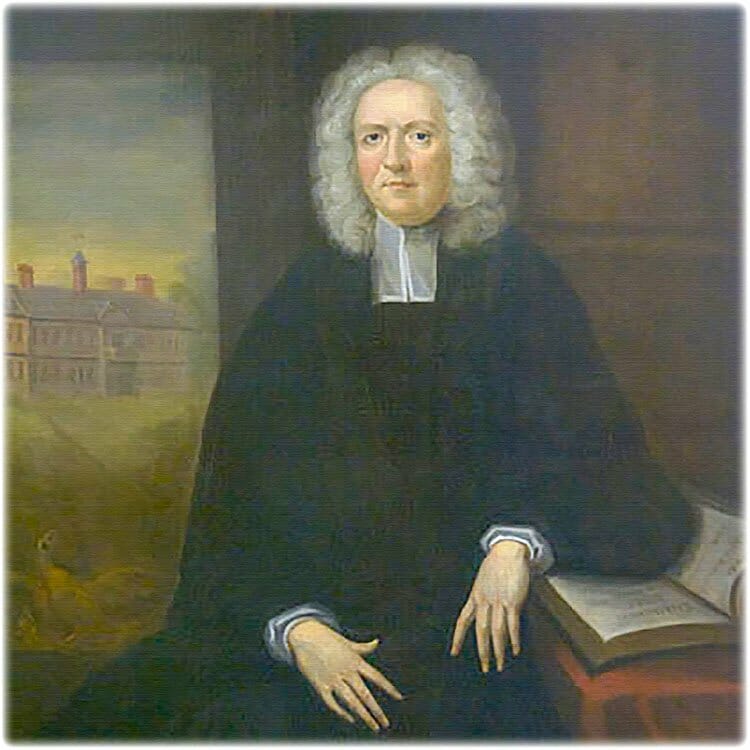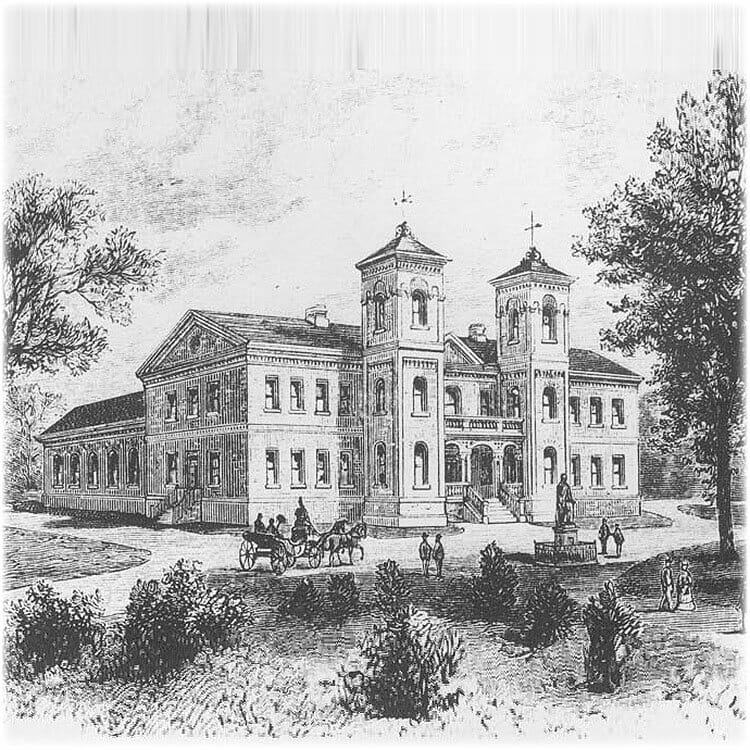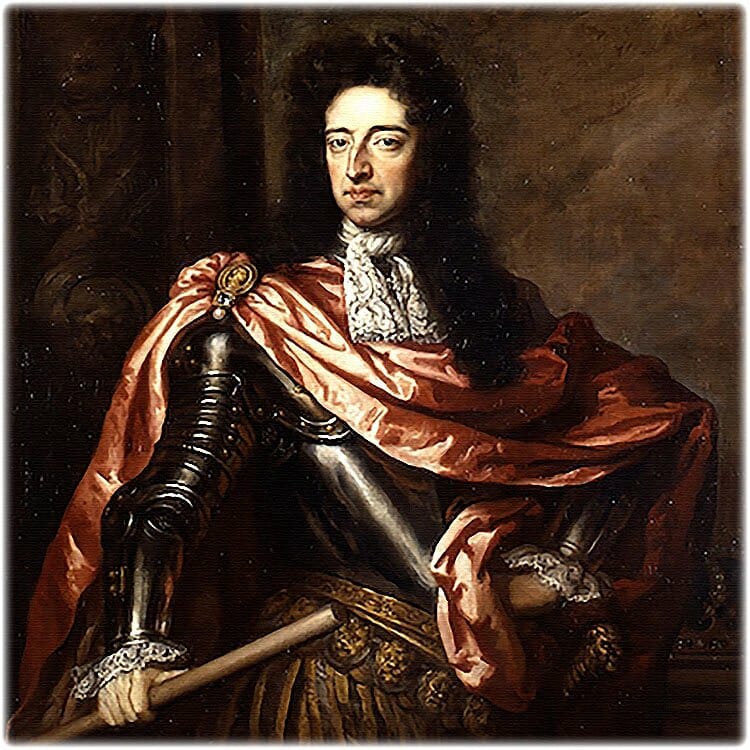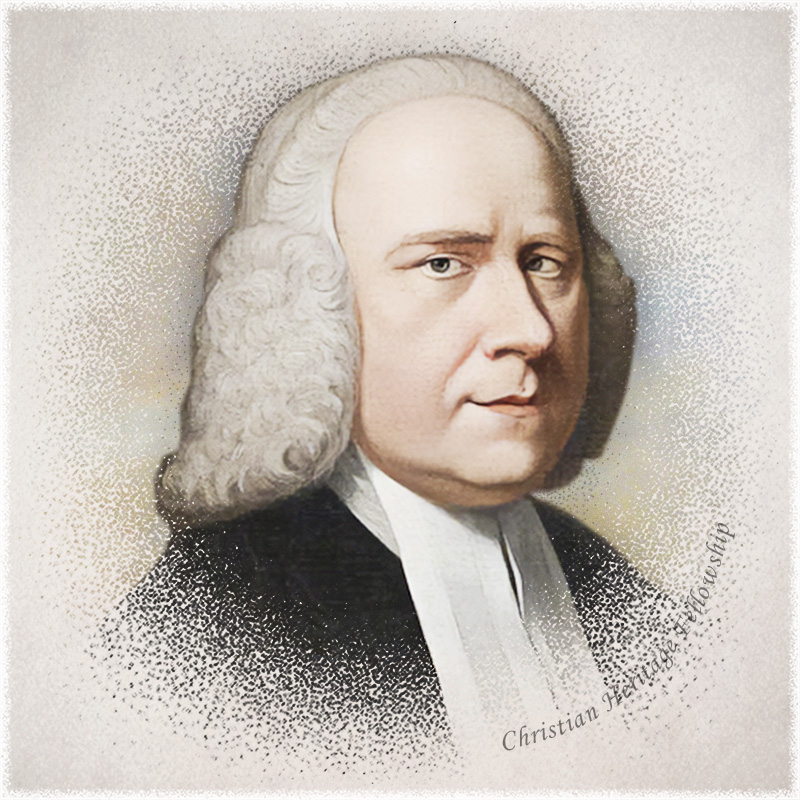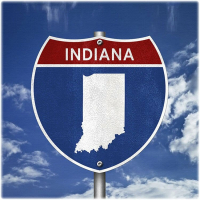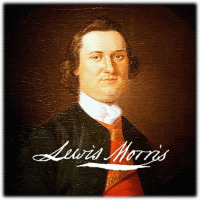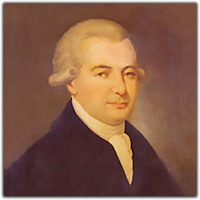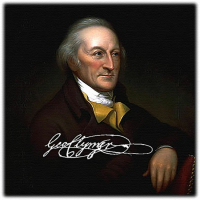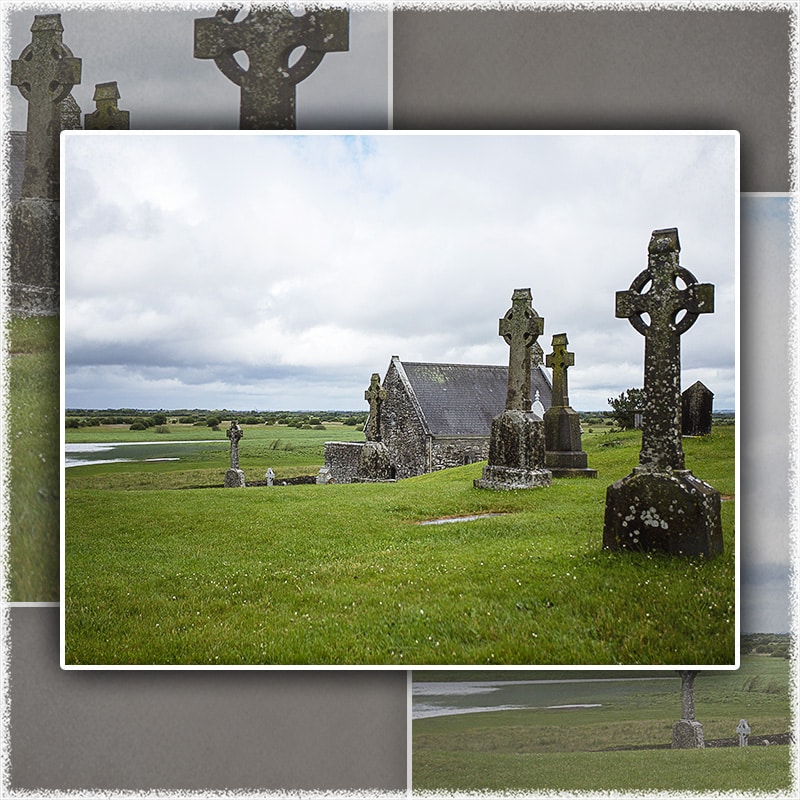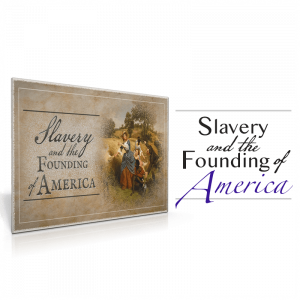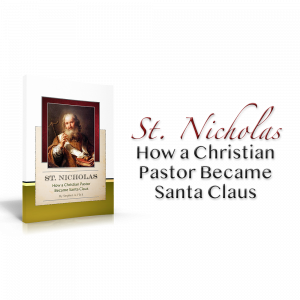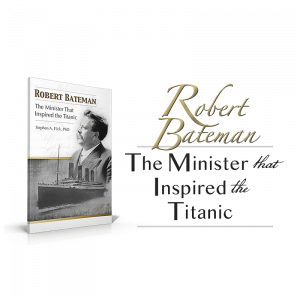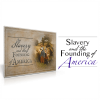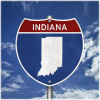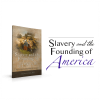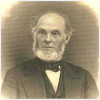The Christian Origin of William and Mary
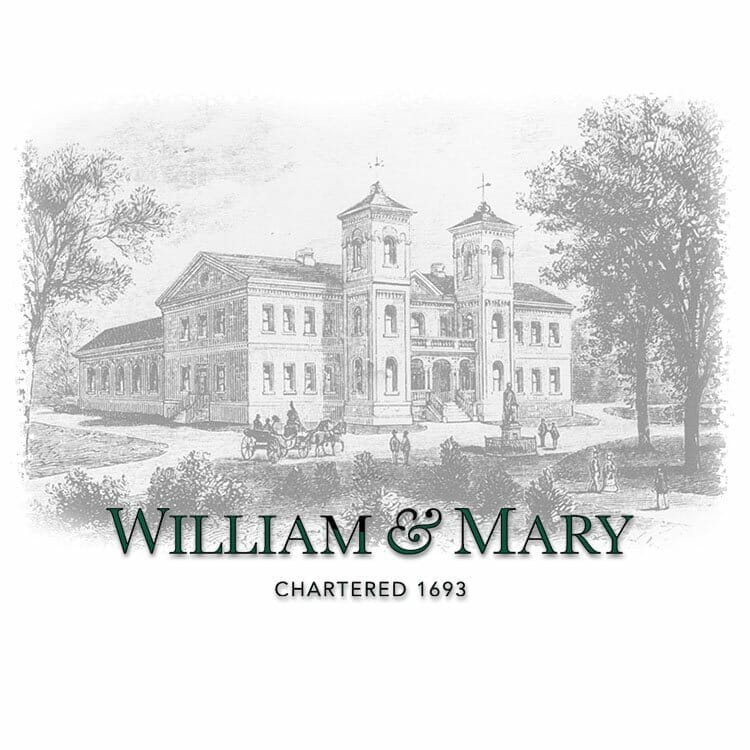
Despite secular takeovers, the most prestigious academic institutions in America and around the world owe their origin to Christianity—including all of America's Ivy League schools! Click to read the entire article…William and Mary
Like ungrateful children, millions of Americans enjoy the blessings which a Christian culture has bestowed upon them without displaying the least awareness or appreciation of this fact. One of the many areas taken for granted is the discipline of education. Influenced by its Jewish origin, Christianity also esteemed the importance of education. When the barbarian hordes nearly snuffed out learning in the Western world, Christians such as the spiritual and ecclesiastical descendants of St. Patrick were around to pick up the pieces.[1] Throughout Europe, the most prestigious universities date their origin to Christian influence, and what is true concerning Europe and other parts of the world is especially true in America—in particular, the second oldest institution of higher learning in America, the College of William and Mary .
Article Contents
The College of William and Mary in Williamsburg, Virginia (also simply known as William and Mary) was founded on February 8, 1693 by royal charter issued by King William III and Queen Mary II. It is the second oldest higher education institution in America—second only to Harvard. Through its graduates, it extended significant influence upon the development of America as an independent nation. Among her distinguished graduates were Presidents Thomas Jefferson (April 13, 1743 – July 4, 1826), James Monroe (April 28, 1758 – July 4, 1831), and John Tyler (March 29, 1790 – January 18, 1862). William and Mary further extended its political influence upon the nation through sixteen members of the Continental Congress, four signers of the Declaration of Independence, four justices of the Supreme Court of the United States—including famed Chief Justice, John Marshall—many members of Congress, cabinet members, and diplomats. Another distinguishing feature of William and Mary is the fact that George Washington, at seventeen, obtained his surveyor's license here, and following his Presidency also served as the College's Chancellor.[2]William and Mary
As early as 1618,[3] English colonists had planned to establish a college in Virginia but were prevented from doing so by the Indian Massacre of 1622 and subsequent political developments within the Virginia Company and back home in England. But the real origin of the College of William and Mary was found in the heart of a Christian minister—Rev. Dr. James Blair.
James Blair (1656 – April 18, 1743) was the son of Rev. Robert Blair and was born in Banffshire, Scotland. Educated at the University of Aberdeen and the University of Edinburgh, James Blair was ordained in the National Church of Scotland (or Kirk of Scotland) in 1679. Caught in the middle of political upheaval within the Church of Scotland, between those supporting a return to the Roman Catholic Church and those seeking the continued independence of the Kirk, Blair was deprived of his parish in Edinburgh in 1681. Seeking opportunity for ministry, Blair moved to London, where under the influence of the Bishop of London, Henry Compton, he was ordained into the Church of England and sent to the New World to "revive and reform the church in the Virginia Colony,"[4] where he arrived in 1685.[5] Initially assigned as rector of the Parish of Henrico (Varina), he soon was appointed commissary, the highest church office in the colony.
Being "deeply affected with the low state of both learning and religion"[6] in Virginia, Rev. Blair undertook the challenge of establishing a college to remedy the condition. With the support of the lieutenant-governor, Sir Francis Nicholson, Blair began a subscription to raise financial support for the venture and returned to England to seek royal approval. On February 8, 1693, his efforts were rewarded with a charter from King William III and Queen Mary II, the college being "called and denominated, forever, the College of William and Mary."[7] Rev. Blair was made the first president, serving in this capacity for fifty years (1693-1743), which earned him the distinction of the longest serving president of William and Mary and the second longest serving president in United States history.[8]
Throughout the charter of William and Mary, the "clerks" or clergy were among administrators given prominent oversight of the College. From the contents of the charter, it is evident that the reason Christian clergy were accorded such a prominent role in the life and maintenance of William and Mary was—as stated in the charter—for the purpose of "propagating the pure gospel of Christ."[9]
Christian Commitment at William and Mary
Today, the College of William and Mary is located in Williamsburg, Virginia, but the College came into being before the town. Jamestown had been the first permanent English settlement in Virginia, and a 330-acres tract of land was selected for William and Mary only eight miles from this first settlement, an area then known as Middle Plantation—a tract of land populated by simple timber buildings.[10] The first classes were held in 1694 in temporary facilities—the year after the charter was granted. Construction on the main building, then simply known as the College Building,[11] began in 1695 and was completed in 1699. Not until 1722 was the name Middle Plantation changed when a royal charter recognized the city of Williamsburg (though Middle Plantation—and its successor Williamsburg—had served as the capital of colonial Virginia from 1699 to 1780).[12] During this time, buildings constructed for the College often served as the legal center of Virginia.
That King William and Queen Mary intended that the College should be established and maintained according to Christian principles was made immediately evident in their charter, as noted in their initial resolve:
Forasmuch as our well-beloved and faithful subjects, constituting the General Assembly of our Colony of Virginia, have had it in their minds, and have proposed to themselves, to the end that the Church of Virginia may be furnished with a seminary of ministers of the gospel, and that the youth may be piously educated in good letters and manners, and that the Christian faith may be propagated amongst the Western Indians, to the glory of Almighty God; to make, found and establish a certain place of universal study, or perpetual College of Divinity, Philosophy, Languages, and other good Arts and Sciences…[13]
To ensure that the Christian commitment of the two Monarchs could not easily be mistaken, their intent was explicitly stated two more times in the first article of the charter. They sought to ensure that . . .
. . . the orthodox Christian faith may be propagated . . .
and,
. . . for propagating the pure gospel of Christ, our only Mediator, to the praise and honor of Almighty God . . .
To propagate the "orthodox Christian faith" and "the pure gospel of Christ, our only Mediator," courses in "Divinity [Christian theology and biblical studies], Philosophy, Languages and other good Arts and Sciences" were to be established.
One of the clearest evidences of the biblical fidelity of William and Mary's founding father, Rev. Dr. Blair, is encapsulated in an anecdote related by early America's most widely esteemed evangelist, George Whitefield. Because Benjamin Franklin valued the ministry of Rev. Whitefield so highly, Franklin was among the citizens of Philadelphia who helped to construct the "Whitefield Building" that eventually became the University of Pennsylvania. For this reason, the influence of Whitefield upon the development of the University of Pennsylvania is memorialized by the statue that now stands on that campus. In his Journal, George Whitefield related the gracious reception which his fellow Anglican priest, Dr. Blair, extended to him when Whitefield visited William and Mary:
Paid my respects to Mr. Blair the commissary of Virginia, and by far the most worthy Clergyman I have yet conversed with in all America. His discourse was savory, such as tended to the use of edifying. He received me with joy, asked me to preach, and wished my stay was to be longer. Under God he has been chiefly instrumental in raising a beautiful college in Williamsburg, in which is a foundation for about eight scholars, a president, two masters, and professors in the several sciences. Here the gentlemen of Virginia send their children; and as far as I could learn by enquiry, they are near in the same order, and under the same regulation and discipline as in our universities at home. The present masters came from Oxford. Two of them I find were my contemporaries. I rejoiced in seeing such a place in America. It may be of excellent use if learning Christ be made one end of their studies and other arts and sciences only introduced and pursued as subservient to that. For want of this, most of our English schools and universities are sunk into mere seminaries of paganism. Young men's heads are stuffed with heathen mythology, Christ or Christianity is scarce so much as named amongst them; so that when they come to be converted, they are obliged to undo what they have been doing for many years; and they are the most happy who can soonest forget their education. Revive, O Lord, a primitive spirit, and then we may hope for some primitive schools to be erected and encouraged amongst us![14]
Tragically, the influence of Christianity upon the origin and development of America is now denigrated and denied. One such glaring example is comedian John Stewart,[15] who is a graduate of the College of William and Mary. As is true of an increasing number of Americans, Stewart professes to be irreligious, but what he and many other like him fail to realize and admit is that they are the beneficiaries of the benevolent spirit of Christianity. With a spirit of ingratitude, they mock and ridicule Christianity—and all forms of religion—yet are incapable of producing evidence of irreligion's benevolence. He cannot point to the benevolent irreligion of Voltaire, Rousseau, or any of the Intellectuals. Christians can point to the airplane and say, "The bishop's boys invented that!" They can point to the Red Cross (and Muslim Red Crescent) and say, "That's because of a compassionate Christian business man by the name of Henry Dunant!" To this brief list could be added hundreds of additional benevolent institutions, organizations, inventions, etc., etc., etc. And, yes, there is an answer to the liberal foil of the Crusades—tragic as they were.
Christians may point to the College of William and Mary, all of the Ivy League (including the University of Pennsylvania), and the overwhelming majority of all academic institutions in America and the best universities around the globe as one of many of Christianity's legacies to the world.
Appendix: Charter of William and Mary
Click here to learn more
WILLIAM AND MARY, by the grace of God, of England, Scotland, France and Ireland, King and Queen, defenders of the faith, &c. To all to whom these our present letters shall come, greeting.
Forasmuch as our well-beloved and faithful subjects, constituting the General Assembly of our Colony of Virginia, have had it in their minds, and have proposed to themselves, to the end that the Church of Virginia may be furnished with a seminary of ministers of the gospel, and that the youth may be piously educated in good letters and manners, and that the Christian faith may be propagated amongst the Western Indians, to the glory of Almighty God; to make, found and establish a certain place of universal study, or perpetual College of Divinity, Philosophy, Languages, and other good Arts and Sciences, consisting of one President, six Masters or Professors, and an hundred scholars more or less, according to the ability of the said college, and the statutes of the same; to be made, increased, diminished, or changed there, by certain trustees nominated and elected by the General Assembly aforesaid, to wit, our faithful and well-beloved Francis Nicholson, our Lieutenant Governor in our Colonies of Virginia and Maryland; Wm. Cole, Ralph Worm[e]ley, William Byrd and John Lear, Esquires; James Blair, John Farnifold, Stephen Fouace and Samuel Gray, clerks; Thomas Milner, Christopher Robinson, Charles Scarborough, John Smith, Benjamin Harrison, Miles Cary, Henry Hartwell, William Randolph and Matthew Page, gentlemen, or the major part of them, or of the longer livers of them, on the south side of a certain river, commonly called York river, or elsewhere, where the General Assembly itself shall think more convenient, within our Colony of Virginia, to be supported and maintained, in all time coming.
I. And forasmuch as our well-beloved and trusty the General Assembly of our Colony of Virginia aforesaid, has humbly supplicated us, by our well-beloved in Christ, James Blair, Clerk, their agent duly constituted, that we would be pleased, not only to grant our royal license to the said Francis Nicholson, William Cole, Ralph Wormeley, William Byrd and John Lear, Esquires; James Blair, John Farnifold, Stephen Fouace and Samuel Gray, Clerks; Thomas Milner, Christopher Robinson, Charles Scarborough, John Smith, Benjamin Harrison, Miles Cary, Henry Hartwell, William Randolph and Matthew Page, Gentlemen, or the major part of them, or of the longer livers of them, to make, found, erect and establish the said college, but also to extend our royal bounty and munificence towards the erection and foundation of the said college, in such way and manner as to us shall seem most expedient: We, taking the premises seriously into our consideration, and earnestly desiring, that as far as in us lies, true philosophy, and other good and liberal arts and sciences may be promoted, and that the orthodox Christian faith may be propagated: And being desirous, that forever hereafter, there should be one such college, or place of universal study, and some certain and undoubted way within the said college, for the rule and government of the same, and of the masters or professors, and scholars, and all others inhabiting and residing therein, and that the said college should subsist and remain in all time coming of our special grace, certain knowledge, and mere motion, HAVE GRANTED and given leave, and by these presents do grant and give leave, for us, our heirs and successors, as much as in us lies, to the said Francis Nicholson, William Cole, Ralph Wormeley, William Byrd and John Lear, Esquires; James Blair, John Farnifold, Stephen Fouace and Samuel Gray, Clerks; Thomas Milner, Christopher Robinson, Charles Scarborough, John Smith, Benjamin Harrison, Miles Cary, Henry Hartwell, William Randolph and Matthew Page, Gentlemen; That they or the major part of them, or of the longest livers of them, for promoting the studies of true philosophy, languages, and other good arts and sciences, and for propagating the pure gospel of Christ, our only Mediator, to the praise and honor of Almighty God, may have power to erect, found and establish a certain place of universal study, or perpetual College, for Divinity, Philosophy, Languages and other good Arts and Sciences, consisting of one President, six masters or professors, and an hundred scholars, more or less, graduates and non graduates, as above said, according to the statutes and orders of the said College, to be made, appointed and established upon the place by the said Francis Nicholson, William Cole, &c., or the major part of them, upon the south side of York river, on the land late of Colonel————-Townsend, deceased, now in the possession of John Smith, near the port appointed or laid out for York county, by the said General Assembly, within our said colony of Virginia; or if by reason of unwholesomeness, or any other cause, the said place shall not be approved of, wheresoever else the General Assembly of our Colony of Virginia, or the major part of them shall think fit, within the bounds of the aforesaid colony, to continue for all times coming.
II. And further, of our special grace, certain knowledge, and mere motion, WE HAVE GRANTED, and given leave, and by these presents do grant, and give leave, for us, our heirs and successors, to the said Francis Nicholson, William Cole, &c., that they, or the major part of them, or the longer livers of them, may be enabled to take, hold and enjoy, and that they may be persons apt and capable in law, for taking, holding and enjoying all Manors, Lands, Tenements, Rents, Services, Rectories, Portions, Annuities, Pensions and Advowsons of Churches, with all other Inheritances, Franchises and Possessions whatsoever as well spiritual as temporal, to the value of two thousand pounds a year; and all other goods and chattels, monies and personal estate whatsoever, of the gift of any person whatsoever, that is willing to bestow them for this use; or any other gifts, grants, assignments, legacies or appointments, of the same, or of any of them, or of any other goods whatsoever: But with this express intention, and upon the special trust we put in them that they the said Francis Nicholson, William Cole, &c., or the major part of them, or of the longer livers of them, shall take and hold the premises, and shall dispose of the same, and of the rents, revenues or profits thereof, or of any of them only for defraying the charges that shall be laid out in erecting and fitting the edifices of the said intended college, and furnishing them with books, and other utensils, and all other charges pertaining to the said college, as they or the major part of them, shall think most expedient, until the said college shall be actually erected, founded and established, and upon this trust and intention, that so soon as the said college shall, according to our royal intent be erected and founded, the said Francis Nicholson, William Cole, &c., or the longer livers or liver of them, and their or his heirs, executors, administrators or assigns, shall by good and sufficient deeds and assurances in law give, grant and transfer to the said President and masters, or professors, or their successors, the said Lands, Manors, Tenements, Rents, Services, Rectories, Portions, Annuities, Pensions and Advowsons of Churches, with all other inheritances, franchises, possessions, goods, chattels and personal estate aforesaid, or as much thereof as has not been laid out and bestowed upon the building the said college, or to the other uses above mentioned.
III. And seeing the said General Assembly of our Colony of Virginia, has named, elected or appointed, the said James Blair, Clerk, as a fit person to be President of the said college; we of our special grace, certain knowledge, and mere motion, do approve, confirm and ratify the said nomination and election, and do by these presents make, create and establish the said James Blair first President of the said college, during his natural life.
IV. And further, we grant our special license to the said Francis Nicholson, William Cole, &c., and their successors, or the major part of them, that they have power to elect and nominate other apt, fit and able persons, into the places of the masters or professors of the said college; and that, after the death, resignation or deprivation of the said President, or Professors, or any of them, the said Francis Nicholson, William Cole, &c., and their successors, or the major part of them, shall have power to put in, and substitute, a fit person, or persons, from time to time, into his or their place, or places, according to the orders and statutes of the said college, to be made, enacted and established, for the good and wholesome government of the said college, and of all that bear office, or reside therein, by the said Francis Nicholson, William Cole, &c., or their successors, or the major part of them.
V. And further, we will, and for us, our heirs and successors, by these presents, do GRANT, that when the said College shall be so erected, made, founded and established, it shall be called and denominated, for ever, the College of William and Mary, in Virginia, and that the President and masters, or professors, of the said college, shall be a body politic and incorporate, in deed and name; and that by the name of the President, and masters, or professors, of the College of William and Mary, in Virginia, they shall have perpetual succession; and that the said President, and masters, or professors, shall forever be called and denominated the President, and Masters, or Professors, of the College of William and Mary, in Virginia: And that the said President, and masters, or professors, and their successors, by the name of the President, and masters, or professors, of the College of William and Mary, in Virginia, shall be persons able, capable, apt and perpetual in law, to take and hold lordships, manors, lands, rents, reversions, rectories, portions, pensions, annuities, inheritances, possessions and services, as well spiritual as temporal, whatsoever, and all manner of goods and chattels, both of our gift, and our heirs and successors, and of the gift of the said Francis Nicholson, William Cole, Ralph Wormeley, Wm. Byrd and John Lear, Esquires; James Blair, John Farnifold, Stephen Fouace and Samuel Gray, Clerks; Thomas Milner, Christopher Robinson, Charles Scarborough, John Smith, Benjamin Harrison, Miles Cary, Henry Hartwell, William Randolph and Matthew Page, Gentlemen; or of the gift of any other person whatsoever, to the value of two thousand pounds, of lawful money of England, yearly and no more, to be had and held by them and their successors for ever.
VI. And also, that the said President, and masters or professors, by and under the name of the President, and masters, or professors of the College of William and Mary, in Virginia, shall have power to plead, and be impleaded, to sue, and to be sued, to defend, and be defended, to answer, and be answered, in all and every cause, complaint, and action, real, personal and mixed, of what kind and nature soever they be, in whatsoever courts and places of Judicature belonging to us, our heirs and successors or to any person whatsoever, before all sorts of justices and judges, ecclesiastical and temporal, in whatsoever kingdoms, countries, colonies, dominions or plantations, belonging to us, or our heirs, and to do, act, and receive, these and all other things, in the same manner, as our other liege people, persons able and capable in law, within our said Colony of Virginia or our kingdom of England, do, or may act, in the said courts and places of Judicature, and before the said justices and judges.
VII. As also, that the said President, and masters or professors, and their successors shall have one common seal, which they make use of in any whatsoever cause and business belonging to them and their successors; and that the President, and masters or professors of the said College, and their successors, shall have leave to break, change and renew, their said seal, from time to time, at their pleasure, as they shall see most expedient.
VIII. And further of our more especial grace, we have given and granted, and for us, our heirs, and successors, we give and grant our special license, as far as in us lies to the said Francis Nicholson, William Cole, Ralph Wormeley, William Byrd and John Lear, Esquires; James Blair, John Farnifold, Stephen Fouace, Samuel Gray, Clerks; Thomas Milner, Christopher Robinson, Charles Scarborough, John Smith, Benjamin Harrison, Miles Cary, Henry Hartwell, William Randolph and Matthew Page, gentlemen, that they, or any other person or persons, whatsoever, after the said college is so founded, erected, made, created and established, may have power to give, and grant, assign and bequeath, all manors, lands, tenements, rents, services, rectories, portions, annuities, pensions and advowsons of Churches, and all manner of inheritance, franchises and possessions whatsoever, as well spiritual as temporal, to the value of two thousand pounds a year, over and above all burthen and reprisals, to the President, and masters, or professors, of the said College, for the time being, and their successors, to be had, held and enjoyed, by the said President, and masters, or professors, and their successors, forever: And that they the said President and masters, or professors aforesaid, may take and hold, to themselves, and their successors, forever, as is aforesaid, manors, lands, tenements, rents, reversions, services, rectories, portions, pensions, annuities, and all, and all manner of inheritances, and possessions whatsoever, as well spiritual as temporal, to the aforesaid value of two thousand pounds a year, over and above all burthens, reprisals and reparations: It not being our will, that the said President, and masters or professors of the said College, for the time being, or their successors, shall be troubled, disquieted, molested, or aggrieved by reason, or occasion of the premises, or any of them, by us, our heirs, and successors, or by any of our justices, escheators, sheriffs, or other bailiffs, or ministers, whatsoever, belonging to us, our heirs and successors.
IX. And further, we will, and by these presents, do declare, nominate, ordain and appoint, the said Francis Nicholson, William Cole, Ralph Wormeley, William Byrd and John Lear, Esquires; James Blair, John Farnifold, Stephen Fouace and Samuel Gray, Clerks; Thomas Milner, Christopher Robinson, Charles Scarborough, John Smith, Benjamin Harrison, Miles Cary, Henry Hartwell, William Randolph and Matthew Page, gentlemen; and their successors, to be the true, sole and undoubted visitors and governors of the said college forever: And we give and grant to them, or the major part of them, by these our letters patents, a continual succession, to be continued in the way and manner hereafter specified; as also full and absolute liberty, power and authority, of making, enacting, framing and establishing such and so many rules, laws, statutes, orders and injunctions, for the good and wholesome government of the said college, as to them the said Francis Nicholson, William Cole, &c., and their successors, shall from time to time, according to their various occasions and circumstances, seem most fit and expedient: All which rules, laws, statutes and injunctions so to be made, as aforesaid, we will have to be observed, under the penalty therein contained: Provided notwithstanding that the said rules, laws, statutes, orders and injunctions, be no way contrary to our prerogative royal, nor to the laws and statutes of our kingdom of England or our colony of Virginia, aforesaid, or to the canons and constitutions of the church of England, by law established.
X. And further, we will and by these presents, for us, our heirs and successors, do grant and confirm to the said visitors, and governors of the said college, and their successors, that they and their successors, shall, forever, be eighteen men, or any other number not exceeding the number of twenty, in the whole, to be elected and constituted in the way and manner hereinafter specified; and that they shall have one discreet and fit person, that shall be elected, and nominated, out of their number, in the manner hereafter mentioned, that shall be, and shall be called Rector of the said college: And we have appointed and confirmed and by these presents, do appoint and confirm the said James Blair, to be the present rector of the said college, to be continued in the said office for one year next ensuing the foundation of the said college, and thereafter till some other of the visitors and governors of the said college shall be duly elected, preferred and sworn into the said office; and that from time to time, and in all time coming, after the said year is expired, or after the death of the rector within the year, the visitors and governors of the said college, or the greater part of them, or of their successors, shall have power to elect and nominate another discreet and fit person, from amongst themselves to be rector of the said college; and that he who is elected, preferred and nominated, as above said, into the place of rector of the said college, shall have power to have, exercise and enjoy the said office of rector of the said college, for one whole year, then next ensuing and thereafter, until some other rector of the said college shall be duly elected, preferred and sworn into the said office: And to perpetuate the succession of the said rector, and of the said visitors and governors of the said college, we will, ordain and appoint, that as often as any one or more of the said visitors and governors of the said college, shall die, or remove himself and family out of our said colony into any other country for good and all, that then, and so often, the rector for the time being, and the other visitors and governors of the said college, then surviving and remaining within the colony, or the major part of them, shall and may have leave to elect, nominate and choose one or more of the principal and better sort of the inhabitants of our said colony of Virginia, into the place or places of the visitor and governor, or visitors and governors, so dead or removed, to fill up the aforesaid number of visitors and governors, for the said college; and that he or they so elected and chosen shall take his or their corporal oath, before the rector, and the other visitors and governors of the said college, or the major part of them, well and faithfully to execute the said office; which oath the said rector, and two or more of the visitors, shall have power to administer: And that after the taking of the said oath, he or they shall be of the number of the said visitors and governors of the said college.
XI. And further, we will, and by these presents, for us, our heirs and successors, do grant and confirm, to the said President, and masters, or professors of the said college, and their successors, that they and their successors shall have one eminent and discreet person, to be elected and nominated, in the manner hereafter expressed, who shall be, and shall be called chancellor of the said college: And we have appointed and confirmed, and by these presents, for us, our heirs, and successors, do appoint and confirm, our well-beloved and right trusty the reverend father in God, Henry, by divine permission, bishop of London, to be the first chancellor of the said college, to be continued in the said office for seven years next ensuing, and thereafter, until some other chancellor of the said college shall be duly elected and chosen into the said office: And that from time to time, and in all time coming, after these seven years are expired, or after the death of the said bishop, or of the chancellor, for the time being, the rector, and visitors, and governors of the said College for the time being, or the major part of them, shall and may have power to elect, choose and nominate, some other eminent and discreet person, from time to time, to be chancellor of the said college; and that he who is so nominated and elected to be the chancellor of the said college, shall and may have, execute, and enjoy, the said office of chancellor of the said college, for the space of seven years then next ensuing, and thereafter until some other chancellor of the said college shall be duly elected and constituted.
XII. Further, we will by these presents and for us, our heirs and successors, do grant and confirm to the said president, and masters, or professors, of the said college, and to their successors, that after the said college is erected, founded, and established, they may retain and appoint some convenient place, or council chamber, within the said college; and that the rector and other visitors, and governors of the said college, or the major part of them, for the time being, as often as they shall think good, and see cause, may convocate and hold a certain court or convocation within the said chamber, consisting of the said rector and visitors, and governors, of the said college, or the major part of them, in all time coming; and in the said convocation, may treat, confer, consult, advise, and decree, concerning statutes, orders, and injunctions, for the said college.
XIII. And further, we will, and by these presents, for us, our heirs, and successors, do grant and confirm to the said President, and masters, or professors of the said College, and their successors, or the major part of them, that from time to time, and in all time coming, the said rector and visitors, or governors of the said college, and their successors, or the major part of them, shall have power and authority, yearly, and every year, on the first Monday which shall happen next after the feast of the annunciation of the blessed Virgin Mary, to elect and nominate, and that they shall and may elect and nominate one of the said visitors or governors of the said college, to be rector of the said college for one whole year then next ensuing: And that he, after he is so elected and chosen into the said office of rector of the said college, before he be admitted to execute the said office, shall, on the same day and in the same place, take his corporal oath before the last rector, and visitors, or governors of the said college, or any three of them, well and faithfully to execute the said office; and that after so taking the said oath, he shall and may execute the said office of rector of the said college, for one whole year then next ensuing: And also, that every seventh year, on the same Monday, next after the feast of the annunciation of the blessed Virgin Mary, aforesaid, they shall, in like manner, have power and authority to elect and nominate another chancellor of the said college, to be continued for seven years then next ensuing: And that he who shall be elected, chosen, and nominated, into the office of chancellor of the said college, shall and may, immediately after such election and nomination, execute the office of chancellor of the said college for seven years then next ensuing.
XIV. And that the charge and expense of erecting, building, founding and adorning, the said college at present, and also of supporting and maintaining the said president and masters or professors, for the future, may be sustained and defrayed, of our more ample and bounteous special grace, certain knowledge, and mere motion, we have given, granted, assigned, and made over, and by these presents, for us, our heirs, and successors, do give, grant, assign, and make over to the said Francis Nicholson, William Cole, Ralph Wormeley, William Byrd, and John Lear, Esquires; James Blair, John Farnifold, Stephen Fouace, and Samuel Gray, clerks; Thomas Milner, Christopher Robinson, Charles Scarborough, John Smith, Benjamin Harrison, Miles Cary, Henry Hartwell, William Randolph, and Matthew Page, gentlemen, and their executors and assigns forever, the whole and entire sum of one thousand nine hundred and eightyfive pounds, fourteen shillings and ten pence, of good and lawful money of England, that has been received and raised out of quit rents of the said colony, now remaining in the hands of Wm. Byrd, Esquire, our auditor, or in whosoever other hands the same now is, for our use, within the said colony: And, therefore, we command and firmly enjoin the said auditor, or any other person with whom the said money is deposited, or who is obliged to pay the same immediately upon sight of these our letters patents, to pay, or cause to be paid, the said sum of one thousand nine hundred and eight-five pounds, fourteen shillings and ten pence, to the said Francis Nicholson, William Cole, &c., or the major part of them, or of the longer livers of them, or to their attorney, in that part lawfully constituted, with any other warrant, mandate, or precept to be obtained or expected from us, to be laid out and applied about and towards the building, erecting and adorning, the said college, and to no other use, intent or purpose whatever.
XV. Seeing also, by a certain act of parliament, made the twenty-fifth year of the reign of our royal uncle, Charles the Second, of blessed memory, entitled An act for the encouragement of the Greenland and Eastland trades, and for better securing the plantation trade, it was enacted, that after the first day of September, in the year of our Lord M.DC.LXXIII. if any ship, which by law, might trade in any of the plantations, should come to any of them to load, and take on board tobacco, or any other of the commodities there enumerated, and if bond were not first given, with one sufficient surety, to carry the said tobacco to England, Wales, or the town of Berwick upon Tweed, and to no other place, and there to unload and put the same on shore, (the dangers of the sea only excepted 😉 in such case there should be paid to our said uncle, and his heirs and successors, one penny for every pound of tobacco so loaded and put on board, to be levied, collected, and paid in such places, and to such officers, and collectors, as should be appointed in the respective plantations, to collect, levy, and receive the same, and under such penalties, both to the officers and upon the goods as for nonpayment of his majesty's customs in England: And if it should happen, that any person or persons who are to pay the said duties, shall not have ready money to satisfy the same, that the officers who are appointed to collect the said duties, shall in lieu of the said ready money, take such proportion of tobacco, that was to be shipped, as may amount to the value thereof, according to the usual rate of the said commodity, in such plantation respectively: All which things are to be ordered, and disposed, and these several duties are to be caused to be levied, by the commissioners of our customs in England, for the time being, under the authority and direction of the lord treasurer of England, or the commissioners of the treasury, for the time being, as by the said act of parliament, amongst other things therein contained, reference being thereto had, doth more fully appear; we, of our more bounteous grace, mere motion, and certain knowledge, have given and granted, and for us, and our successors, do give, and grant, to the said Francis Nicholson, William Cole, &c., and the other trustees above mentioned, and their heirs for ever, the said revenue of one penny for every pound of tobacco in Virginia, or Maryland, in America, or either of them that shall be so loaded, and put on board, as is above said; and the nett produce which shall accrue in England, or elsewhere, by selling there the tobacco that shall be collected in the colonies of Virginia, and Maryland, in lieu of the penny that ought to be paid for every pound of tobacco so loaded and put on board, as is above said: Provided always, that the commissioners of our customs in England, for the time being, shall name and appoint all the collectors and receivers of the said money and tobacco, and their inspectors and comptrollers, from [time] to time, as they have hitherto done: And that the salaries of the said collectors, receivers, and comptrollers, shall be deducted and paid out of the said revenue; and that the said Francis Nicholson, William Cole, Ralph Wormeley, William Byrd, and John Lear, Esquires; James Blair, John Farnifold, Stephen Fouace, and Samuel Gray, clerks; Thomas Milner, Christopher Robinson, Charles Scarborough, John Smith, Benjamin Harrison, Miles Cary, Henry Hartwell, William Randolph, and Matthew Page, gentlemen, and their successors, as also the President, and masters, or professors of the said College, and their successors, for the time being, shall be obliged to receive and observe all such rules, orders, and instructions, as shall be transmitted to them, from time to time, by the said commissioners of our customs in England, for the time being, under the inspection and direction of the lord treasurer, or the commissioners of our treasury in England, for the time being, for the better and more exact collecting of the said duty, as by the said act of parliament, reference being thereto had, is more particularly directed and appointed: but with this express intention, and upon the special trust and confidence we place in the said Francis Nicholson, William Cole, and the rest of the aforesaid trustees, that they, and the longest livers of them, and their heirs, shall take, hold, and possess the said revenue of a penny per pound, for every pound of tobacco aforesaid, with all its profits, advantages, and emoluments, to apply and lay out the same, for building and adorning the edifices and other necessaries for the said college, until the said college shall be actually erected, founded, and established, and with this express intention, and upon the special trust and confidence, that as soon as the said college shall be erected and founded, according to our royal purpose, the said trustees, and the longest livers or liver of them, and his or their heirs, or assigns, shall, by good and sufficient deeds and assurances in law, give, grant, and transfer to the President, and masters, or professors, of the said college, this whole revenue, with all its profits, issues and emoluments before mentioned, or so much thereof, as shall not have been expended and laid out for the aforesaid uses, to be held, possessed, and enjoyed, by the said President, and masters, or professors, and their successors, for ever.
XVI. And also, of our special grace, mere motion, and certain knowledge, we have given and granted, and by these presents, for us, our heirs, and successors do give and grant to Francis Nicholson, William Cole, and the rest of the said trustees, and the longest livers or liver of them, and to his or their heirs, the office of surveyor-general of our said colony of Virginia, if the said office be now void, or whensoever and how often soever it shall thereafter fall void, to be had, held and executed, with all its issues, fees, profits, advantages, conveniences, liberties, places, privileges, and pre-eminences whatsoever, belonging to the said office, in as ample form and manner, as any other person, who has heretofore had, executed, or possessed the said office, ever had received or enjoyed, or ought to have, receive, or enjoy, by the said trustees, and their heirs; or by such officers and substitutes, as they or the major part of them, or of the longest livers of them, or of their heirs, shall from time to time nominate and appoint, until the said college shall be actually founded and erected: But with this express intention, and upon this special trust and confidence, which we place in the said Francis Nicholson, William Cole, and the rest of the said trustees, that they and the longest livers of them, and their heirs, shall give back and restore to the President and masters, or professors, of the said college, for the time being, whatsoever money remains in their hands that has risen from this office, during their administration, not yet laid out upon the building of the said college, and the other above-mentioned uses, so soon as the said college shall be actually erected and founded. And after the said college shall be actually erected and founded, we will, that the said office of surveyor-general, if it be then void, as often as it shall be void, for the time to come, shall be had, held, and executed, with all its profits and appurtenances above-mentioned, by the said President and masters, or professors, and their successors, for ever: Provided always that the said Francis Nicholson, and the rest of the above-mentioned trustees, or the major part of them, or of the longest livers of them, and the President, and masters, or professors, for the time being, shall, from time to time nominate and substitute such and so many particular surveyors for the particular counties of our colony of Virginia, as our governor in chief, and the council of our said colony of Virginia, for the time being, shall think fit and necessary.
XVII. And also, of our more bounteous special grace, mere motion, and certain knowledge, we have given, granted, and confirmed, and by these presents, for us, and our heirs, and successors, do give, grant, and confirm, to the said Francis Nicholson, William Cole, and the rest of the trustees above-mentioned, ten thousand acres of land, not yet legally occupied or possessed by any of our other subjects, lying, and being, on the South side of the Black-water Swamp, and also other ten thousand acres of land, not legally occupied or possessed by any of our other subjects, lying and being in that neck of land, commonly called Pamunkey neck, between the forks or branches of York river: which twenty thousand acres of land, we will have to be laid out and measured in the places above-mentioned, at the choice of the said Francis Nicholson, William Cole, and the rest of the fore-mentioned trustees, or the major part of them, or of the longest livers of them, to be had and held by the said Francis Nicholson, William Cole, and the rest of the above-mentioned trustees, and their heirs for ever; but with this intention, and upon special trust and confidence, that the said Francis Nicholson, William Cole, and the rest of the said trustees, or the major part of them, or of the longest livers of them, so soon as the said college shall be actually founded, and established, shall give, grant, let, and alienate the said twenty thousand acres of land to the said President and masters, or professors of the said College, to be had and held by them, and their successors, for ever, by fealty, in free and common soccage, paying to us, and our successors, two copies of Latin verses yearly, on every fifth day of November, at the house of our governor, or lieutenant governor of Virginia, for the time being, for ever, in full discharge, acquittance, and satisfaction of all quit-rents, services, customs, dues, and burdens whatsoever, due, or to be due, to us, or our successors, for the said twenty thousand acres of land, by the laws or customs of England or Virginia.
XVIII. And also, of our special grace, certain knowledge, and mere motion, we have given, and granted, and by these presents, for us and our successors, do give, and grant, to the said President, and masters, or professors of the said college, full and absolute power, liberty, and authority, to nominate, elect, and constitute one discreet and able person of their own number, or of the number of the said visitors, or governors, or lastly, of the better sort of inhabitants of our colony of Virginia, to be present in the house of Burgesses, of the General Assembly of our colony of Virginia, and there to act and consent to such things, as by the common advice of our said colony shall (God willing) happen to be enacted.
XIX. And further, it is our pleasure, that such further confirmations and ratifications of the premises shall be granted, from time to time by us, our heirs and successors, to the said Francis Nicholson, and the rest of the trustees above-mentioned, and to their successors, or to the President, and masters, or professors of the said college or to their successors, for the time being, upon their humble petition under the great seal of England, or otherwise, as the attorney-general of us, our heirs, or successors, for the time being, shall think fit and expedient.
In testimony whereof, we have caused these our letters to be made patent. Witness ourselves, at Westminster, the eighth day of February, in the fourth year of our reign. By writ of the Privy Seal.
PIGOTT.
America deserves to know its true heritage.
Please contribute today!
"Anchor Elements" are concepts, events, individuals, terms, or other important components that are featured in this article and which act as reference points for use in other articles throughout our site.
[1] See Thomas Cahill, How the Irish Saved Civilization : The Untold Story of Ireland's Heroic Role from the Fall of Rome to the Rise of Medieval Europe (New York: Nan A. Talese, Doubleday, 1995).
[2] "History of the College," William and Mary, February 6, 2017; https://www.wm.edu/offices/deanofstudents/services/studentconduct/studenthandbook/history_of_the_college/index.php.
[3] "College of William & Mary," Wikipedia, February 7, 2017; https://en.wikipedia.org/wiki/College_of_William_%26_Mary.
[4] "James Blair (Virginia)," Wikipedia, February 8, 2017; https://en.wikipedia.org/wiki/James_Blair_(Virginia).
[5] Leslie Stephen, Sidney Lee, and George Smith, Dictionary of National Biography, First ed., 63 vols. (London: Smith, Elder & Co., 1900), 5:161.
[6] Stephen, Lee, and Smith, Dictionary of National Biography, 5:161.
[7] "Royal Charter," William and Mary Wiki, February 6, 2017; https://scdbwiki.swem.wm.edu/wiki/index.php?title=Royal_Charter.
[8] "James Blair," Wikipedia, https://en.wikipedia.org/wiki/James_Blair_(Virginia).
[9] "Royal Charter," William and Mary Wiki, https://scdbwiki.swem.wm.edu/wiki/index.php?title=Royal_Charter.
[10] "History of the Wren Building," William and Mary, February 7, 2017; https://www.wm.edu/about/history/historiccampus/wrenchapel/history/index.php.
[11] In the 1930s, this building was designated as the Christopher Wren Building, being believed by many it was originally designed by this famous architect.
[12] "Williamsburg, Virginia," Wikipedia, February 7, 2017; https://en.wikipedia.org/wiki/Williamsburg,_Virginia.
[13] "Royal Charter," William and Mary Wiki, https://scdbwiki.swem.wm.edu/wiki/index.php?title=Royal_Charter.
[14] George Whitefield, A Continuation of the Reverend Mr. Whitefield’s [Fifth] Journal from His Embarking after the Embargo, to His Arrival at Savannah in Georgia, ed. Second (London: W. Strahan, 1740), 64–65.
[15] Born into a Jewish home as Jonathan Stuart Leibowitz (November 28, 1962).

